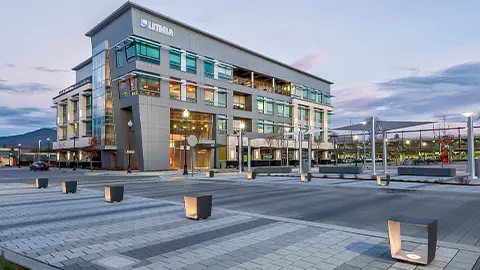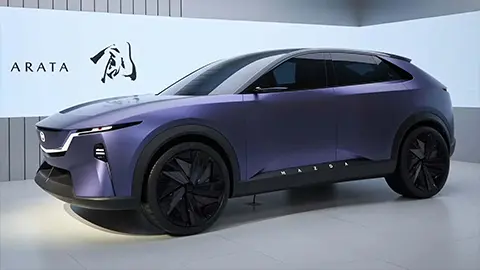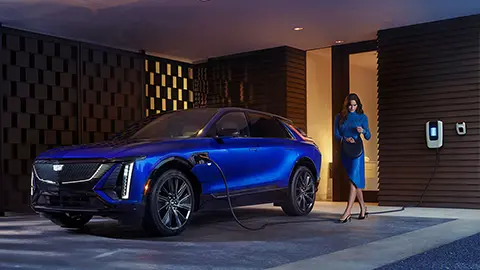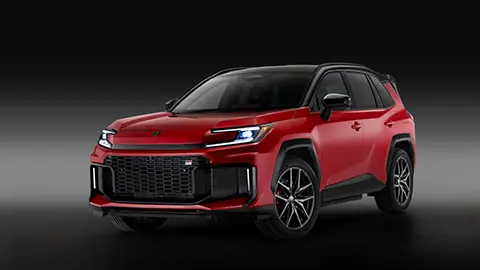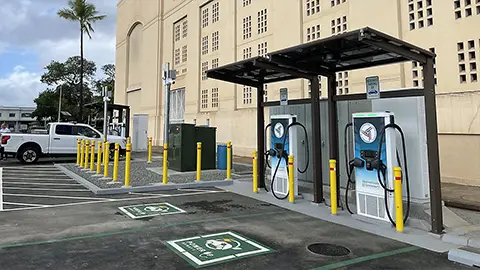What is the Future of Hydrogen?
Toyota is one of the true pioneers in the hydrogen space. It is one of just a handful of manufacturers that has ever had a hydrogen fuel-cell vehicle available for sale to the general public, and it continues to make investments in both hydrogen fuel cell technology, which powers electric motors, as well as hydrogen combustion engines, which use traditional engines, but produce only water as emissions.
Hydrogen-powered passenger cars like the Toyota Mirai, Hyundai Nexo, and Honda Clarity have never really taken off outside of California, largely because the state is the only one in the U.S. with any kind of publicly-accessible hydrogen infrastructure. Because of the relatively small number of passenger vehicles on the road, that infrastructure for passenger vehicles – about 50 fueling stations – is shrinking, and has issues with maintenance and uptime that are often worse than EV charging.
On the other hand, hydrogen fuel cells are a great fit for commercial vehicles, especially long-haul trucks, where batteries aren’t a practical solution, as their weight significantly reduces payload, and charging times even on the fastest chargers would negatively impact productivity. A series of commercially-focused hydrogen hubs, partially funded by the federal and state governments, is being developed across the U.S., with eight large stations designed to provide clean hydrogen fuel for cross-country commercial trucks – enabling a cleaner future for all of the goods that are transported across the U.S. every day.
Hydrogen for Commercial Vehicles
In addition to developing hydrogen technology for passenger cars, Toyota has also been a pioneer in hydrogen for commercial trucks. Indeed, in 2017, Toyota’s hydrogen fuel cell development team acquired a Class 8 truck, fitting it with a hydrogen fuel cell powertrain that consisted of two fuel cell stacks similar to those used in the Mirai sedans.
This test-bed led to a partnership with Kenworth, maker of long-haul trucks, to build 10 proof-of-concept vehicles, which have been proving the viability of hydrogen as a viable and practical zero-emissions powertrain for heavy-duty applications. In 2023, PACCAR, Kenworth’s parent company, and Toyota agreed to pursue commercialization of the hydrogen fuel-cell heavy-duty trucks, with Toyota supplying fuel cell powertrain kits from its factory in Kentucky.
Toyota’s New Hydrogen R&D Campus
Until now, Toyota’s hydrogen development took place in various locations around the U.S. and around the world. But the company is now consolidating its North American hydrogen development efforts in one place, which will unify multiple projects that support fuel cell and other hydrogen-related technologies. The new Toyota Motor North America Hydrogen Headquarters (H2HQ) is located in Gardena, California, and brings together teams working from research and development, to commercialization planning, to sales of hydrogen-related products and technologies. The H2HQ campus will also, in the future host an education center focused on sustainability.
Toyota says that by consolidating all of its hydrogen initiatives in one place, it hopes to drive forward North American-led projects such as heavy-duty fuel cell trucks, stationary fuel cell power generation, hydrogen-powered vehicles for the Port of Long Beach (CA), and light-duty fuel cell powertrains at greater speed.
The Gardena facility has some impressive equipment, including Toyota’s largest dynamometer, which allows testing of massive hydrogen powertrains for heavy-duty applications, as well as its own hydrogen fueling station that can serve commercial vehicles as well as drivers of personal-use vehicles like the Mirai. Additional hydrogen projects will be launched at the North American hydrogen hub over the coming years.
Construction has also begun on a flexible “microgrid” to power the campus, which will feature a number of clean energy sources to meet all of its power needs. There is a huge 230-kW solar photovoltaic system, a 1-MW (megawatt) fuel cell generator, 325-kW solid oxide fuel cell, and a 500-kWh battery energy storage system. The microgrid will allow the campus to operate entirely off the grid, and is expected to be fully operational by 2026.
30 Years of Hydrogen Development
A new hydrogen campus in California is just the latest step in three decades of the Japanese auto giant’s commitment to hydrogen technology. In addition to putting the Mirai, one of the first passenger hydrogen fuel cell electric vehicles on the road, the company has also worked on scaling hydrogen power to other areas that can benefit from zero emissions power generation.
Together with industry partners, Toyota helped support the growth of hydrogen fueling infrastructure throughout California from 2015 to 2023, and has also demonstrated the use of hydrogen fuel cells for stationary power generation. The portable power station was launched at an LPGA Tour stop where it supported the power needs of the stop’s event stage and sound system, providing quiet, clean, zero-emissions power as an alternative to diesel-powered generators.
Last year, on a larger scale, Toyota built a 1-megawatt fuel cell electric generator for the National Renewable Energy Laboratory in Colorado, an experimental microgrid similar to the one being installed at the new Gardena campus. The company has also collaborated with Kohler on a prototype fuel cell generator to provide backup power for the Klickitat Valley Health hospital in Goldendale, Washington.
“Toyota has developed hydrogen fuel cell electric solutions for more than three decades, and we will continue to advance this scalable, zero-emission technology as part of our electrified portfolio,” said Ted Ogawa, CEO of Toyota North America. “Renaming this facility as North American Hydrogen Headquarters represents our leadership in fuel cell development creating real-world products to help reduce carbon emissions.”







